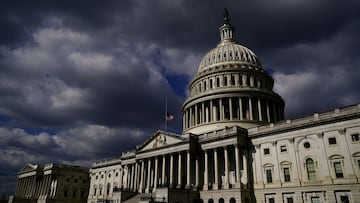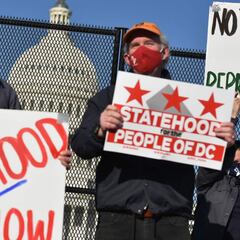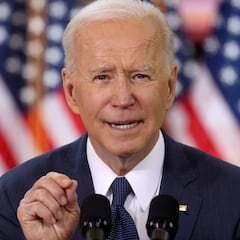DC statehood: when will the Senate vote?
DC statehood passes in the House of Representatives, but the Senate may drag their feet in taking up the measure to hand over control locally.


Thursday 22 April was an historic day in the fight for DC statehood as the measure was approved by the House of Representatives. The fate of statehood for the nation’s capital now lies with the Senate, where supporters will face an uphill battle.
What is the process for DC to become a state?
Fourth stimulus check: who is in favor of its approval?
When is the Senate scheduled to vote on DC statehood?
The short answer: we don’t know.
Based on Senate rules, the measure would require 60 Senators to vote in favor. With the Democratic caucus still lacking unity and Republicans vehemently opposed to the measure, meeting the vote threshold seems unlikely.
A Senate resolution, similar to the bill passed in the House this week, was presented by Delaware Senator Tom Carper in January, and it currently has 44 co-sponsors.
Five Democratic and independent senators -- Mark Kelly and Kyrsten Sinema of Arizona, Angus Kind of Maine, Jeanne Shaheen of New Hampshire, and Joe Manchin III of West Virginia -- have not made their position on statehood clear. The White House released a statement this week to announce that President Biden is a “strong supporter” of statehood for DC, which could encourage these senators to support the resolution.
Republican leaders have made their opposition to statehood clear, stating that the effort is a power grab by Democrats who only support granting statehood to DC to increase the number of votes they have in the Senate. Arguments by Republicans are based on the constitutional legitimacy of the move which they see as conflicting with the documents text and the District’s geographic and population size, as well as the economic industry make-up of the city.
U.S. House PASSES DC Statehood legislation, 216-208.
— CSPAN (@cspan) April 22, 2021
Goes now to the U.S. Senate. pic.twitter.com/M1AzKDJndB
Arguments against giving DC statehood
Republican House and Senate members have made public statements for why DC should not qualify for statehood, including comments made by Georgia representative Jody Hice where he incorrectly stated that the District would be the only state without a car dealership, which was quickly debunked by critics.
On the Senate side, Arkansas’s Tom Cotton received backlash for his comments on the statehood last summer after arguing that states like Wyoming may be “smaller than Washington by population, but it has three times as many workers in mining, logging and construction, and 10 times as many workers in manufacturing.” continuing his remarks by concluding that this makes Wyoming “a well-rounded working-class state” a title he would not use to describe the potential 51st state.
Related stories
Democrats have criticized these statements and others for being racist and discriminatory. During House debate on the matter this week, Mondaire Jones of New York expressed his frustration with Republican resistance saying, “I have had enough of my colleague’s racist insinuation that somehow the people of Washington DC are incapable or even unworthy of our democracy.”
As debate now moves to the Senate, quick passage of statehood for the District’s more than 700,000 residents seems unlikely. Senate Majority Leader, Chuck Schumer, spoke on the floor early this week praising his House colleagues for their passage of DC statehood but has not presented a timeline for when the legislation could be brought before the senate.

